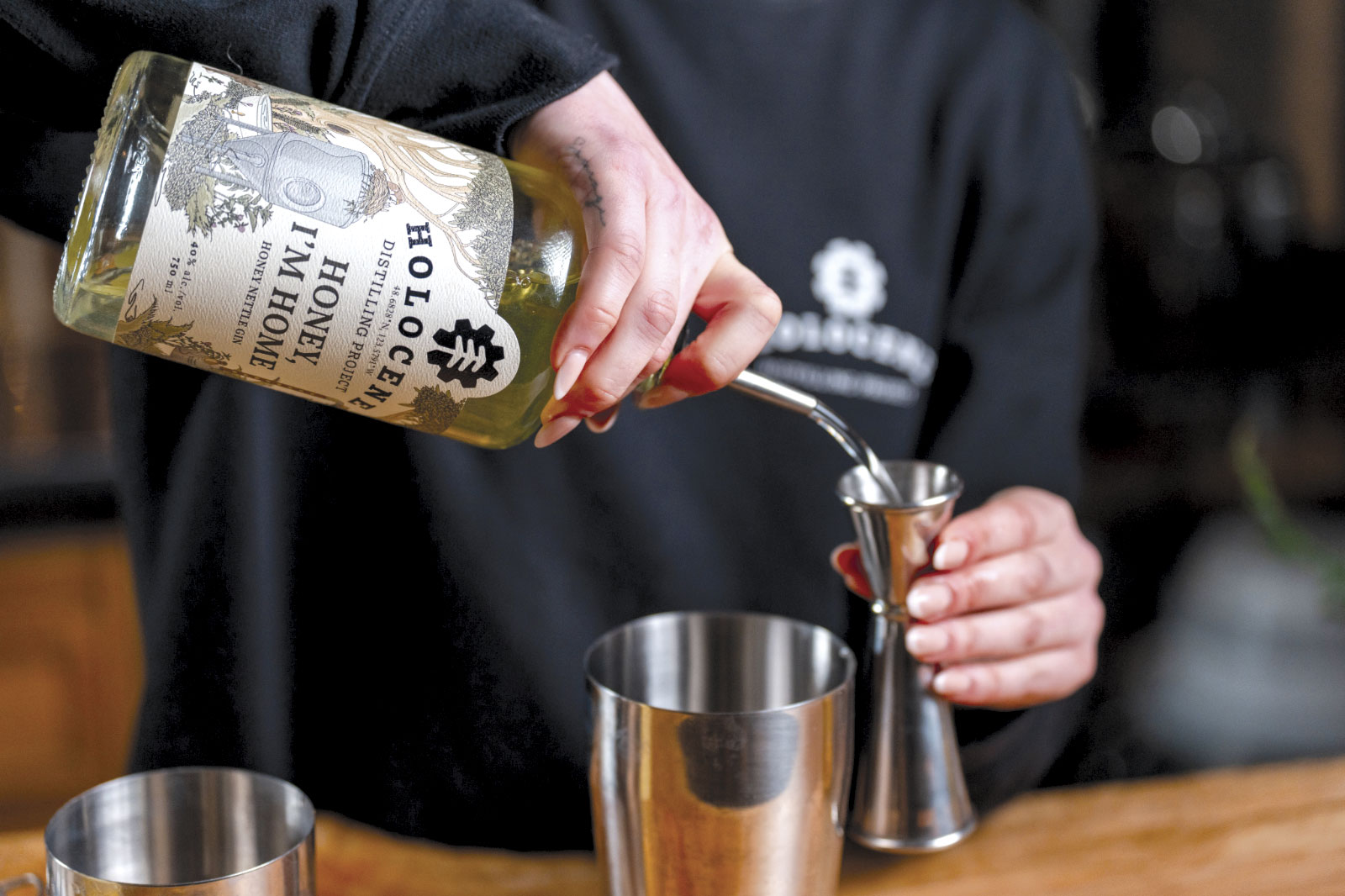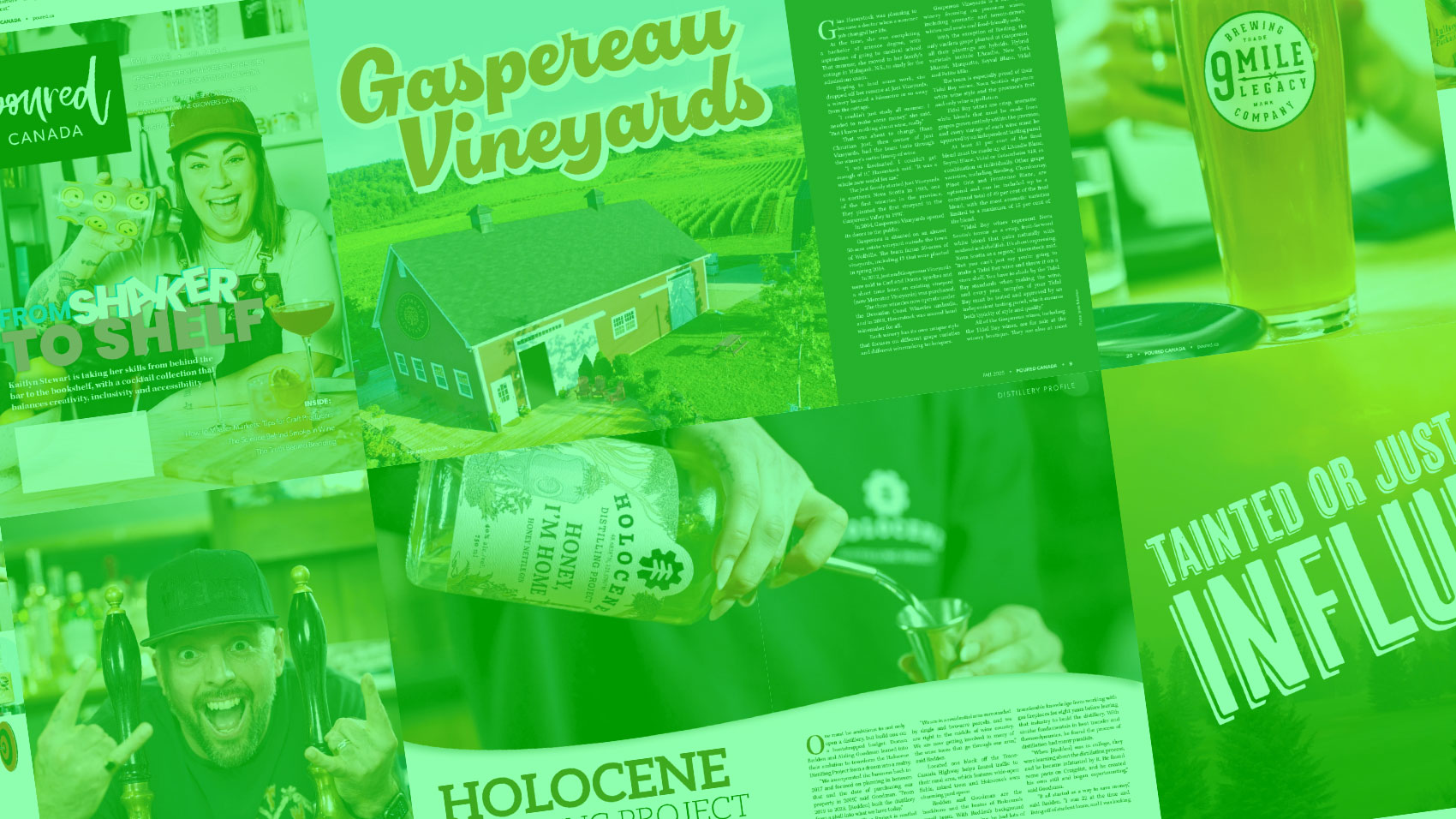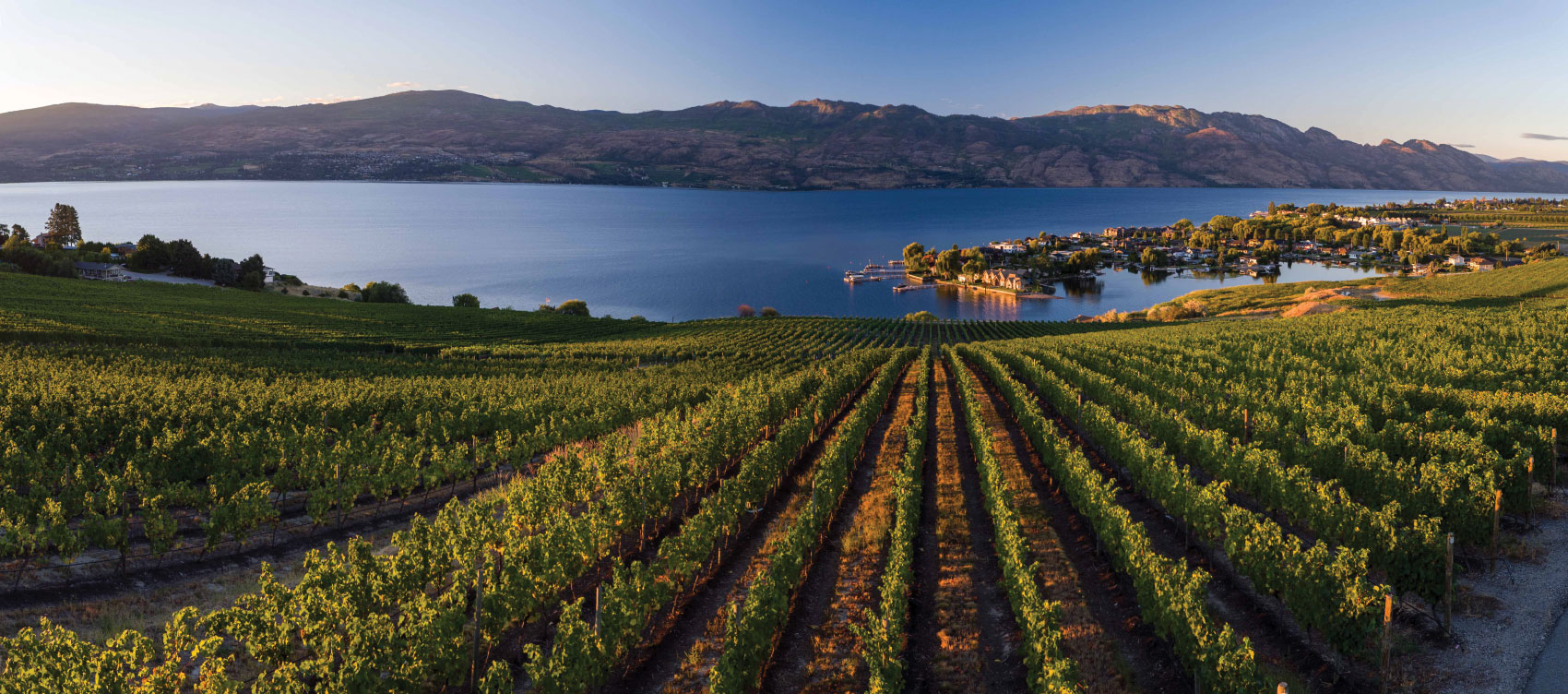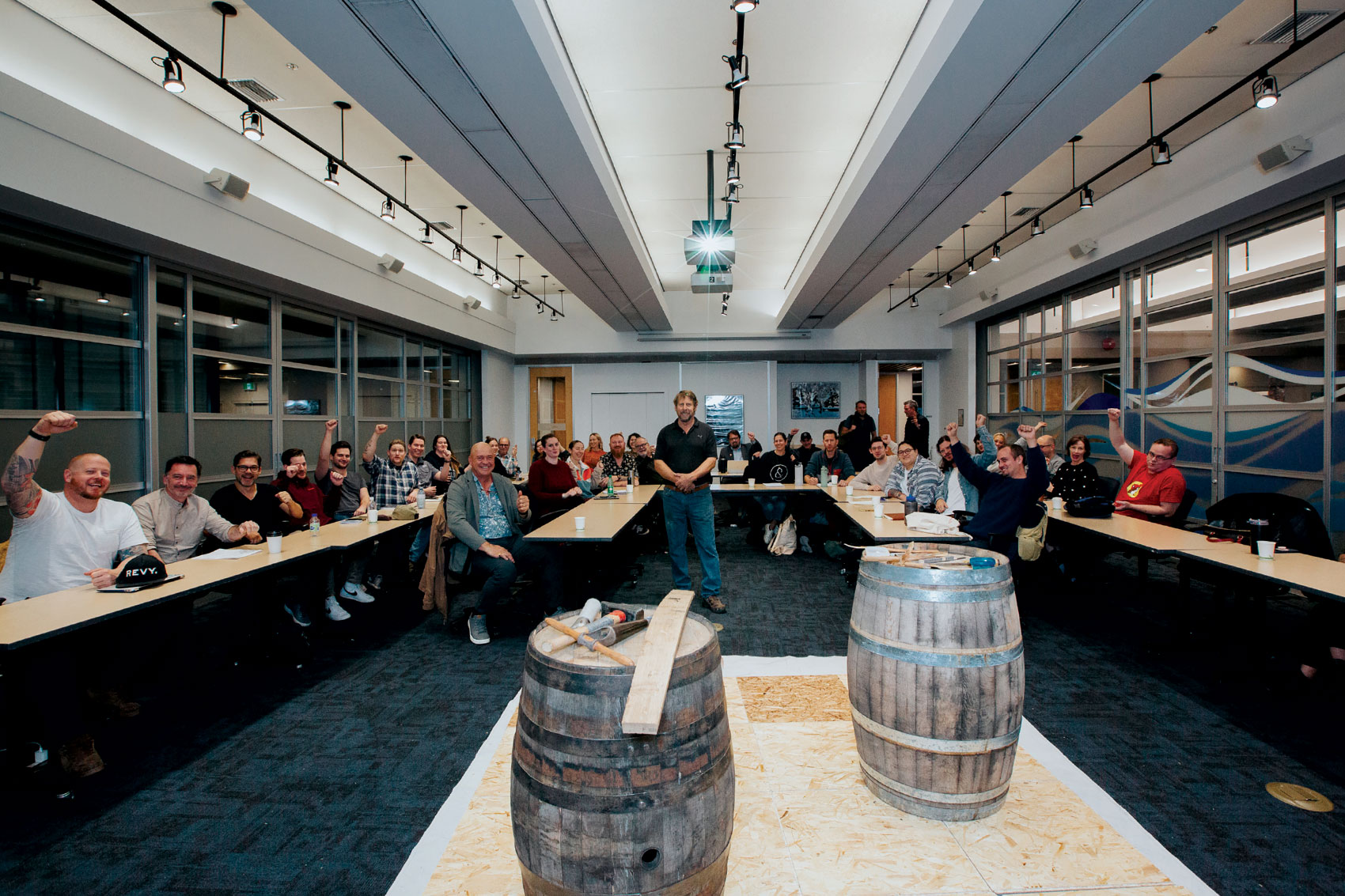One must be ambitious to not only open a distillery, but build one on a bootstrapped budget. Dorian Redden and Aisling Goodman leaned into their ambition to transform the Holocene Distilling Project from a dream into a reality.
“We incorporated the business back in 2017 and focused on planning in between that and the date of purchasing our property in 2019,” said Goodman. “From 2019 to 2023, [Redden] built the distillery from a shell into what we have today.”
Holocene Distilling Project is nestled in Cobble Hill on Vancouver Island, a 40-minute drive outside of Victoria, B.C. “We are in a residential area surrounded by single and two-acre parcels, and we are right in the middle of wine country. We are now getting involved in many of the wine tours that go through our area,” said Redden. Located one block off the Trans-Canada Highway helps funnel traffic to their rural area, which features wide-open fields, mixed trees and Holocene’s own charming yard space.
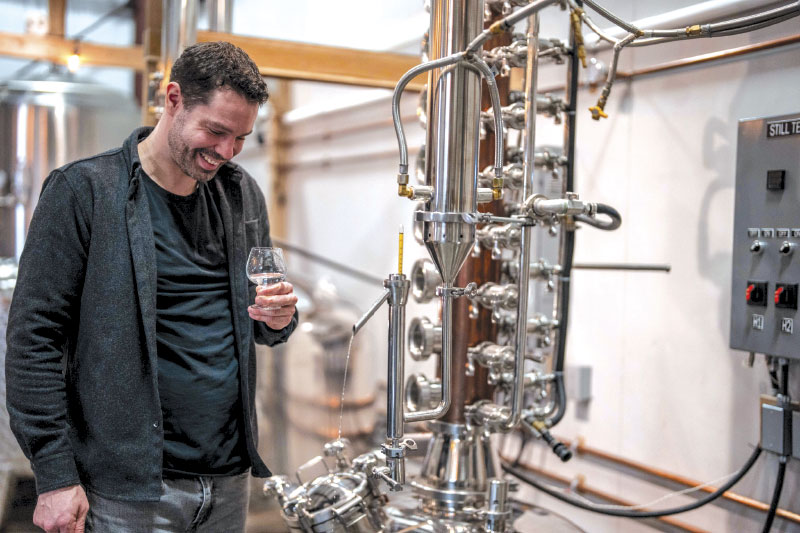
Redden and Goodman are the backbone and the brains of Holocene’s small team. With Redden’s background in mechanical engineering, he had lots of transferable knowledge from working with gas fireplaces for eight years before leaving that industry to build the distillery. With similar fundamentals in heat transfer and thermodynamics, he found the process of distillation had many parallels.
“When [Redden] was in college, they were learning about the distillation process, and he became infatuated by it. He found some parts on Craigslist, and he created his own still and began experimenting,” said Goodman. “It all started as a way to save money,” said Redden. “I was 22 at the time and living off of student loans, and I was looking to find a cheaper alternative to enjoying my weekends with the pals.”
Goodman studied botanical medicine prior to joining Redden and was working as a bartender in Victoria prior to opening the distillery.
“We were fortunate because when we started looking [for land] in 2019, the market was really good for buyers. After that, we had to rezone the property during COVID-19, which took a number of years. It was a slow process, but went relatively smoothly. We were happy it took so much time because once we got through the hurdles, our property value had gone up, which allowed us to pull equity out to build the business,” said Redden.
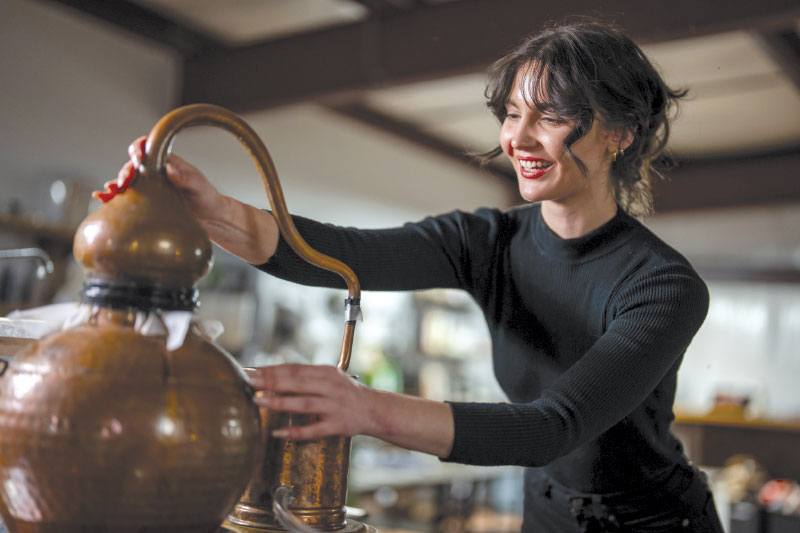
Recently, Holocene Distilling Project has hired three part-time roles – two sales ambassadors and one manufacturing hand to help with operations. While their products are available in 35 private liquor stores on Vancouver Island and a small handful on the mainland, their primary area of distribution is at farmers’ markets. Around 70 per cent of their revenue is comes from market sales.
“We really like connecting directly with our customers,” Redden said. “They get to see our passion and try the spirits before they buy them. On a liquor store shelf, if they do not recognize it or have the chance to taste it, it’s harder to make the leap.” “It’s also invaluable to get that one-on-one customer feedback: what they like, what they’re enjoying it with,” said Goodman. “It’s a very inspiring community when you’re around other creators who are selling things that they are passionate about too.”
“It’s so good to meet the other vendors and makers at the market, too,” said Redden. “Meeting the other entrepreneurs allows us to make connections. For example, there’s a lady who we have gotten to know who loves our products and now includes our gin in her jams, jellies and marmalades.”
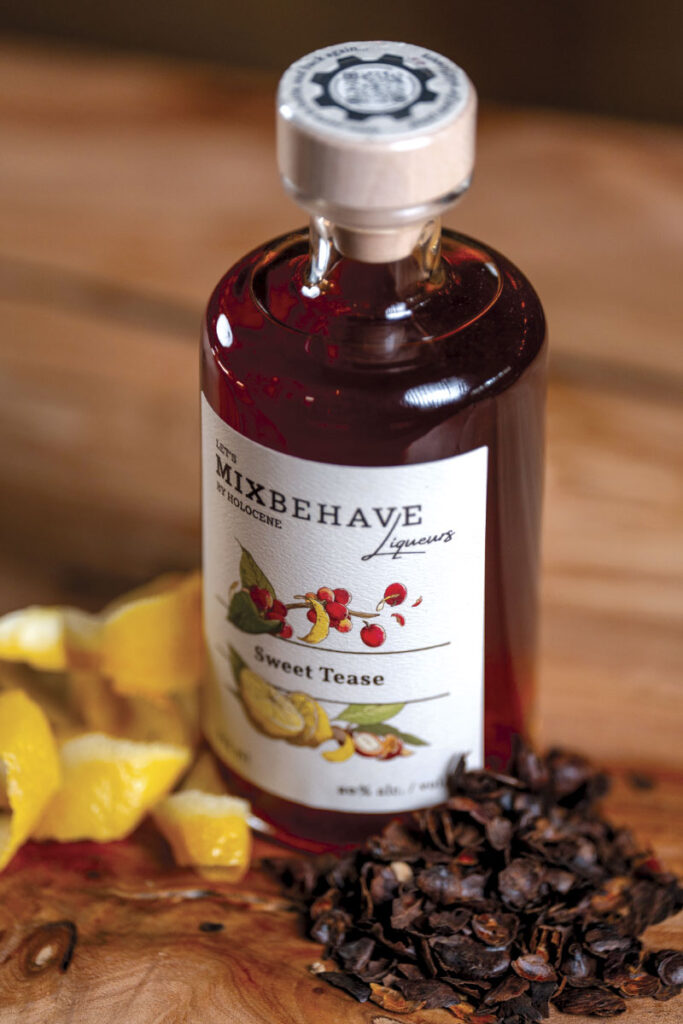
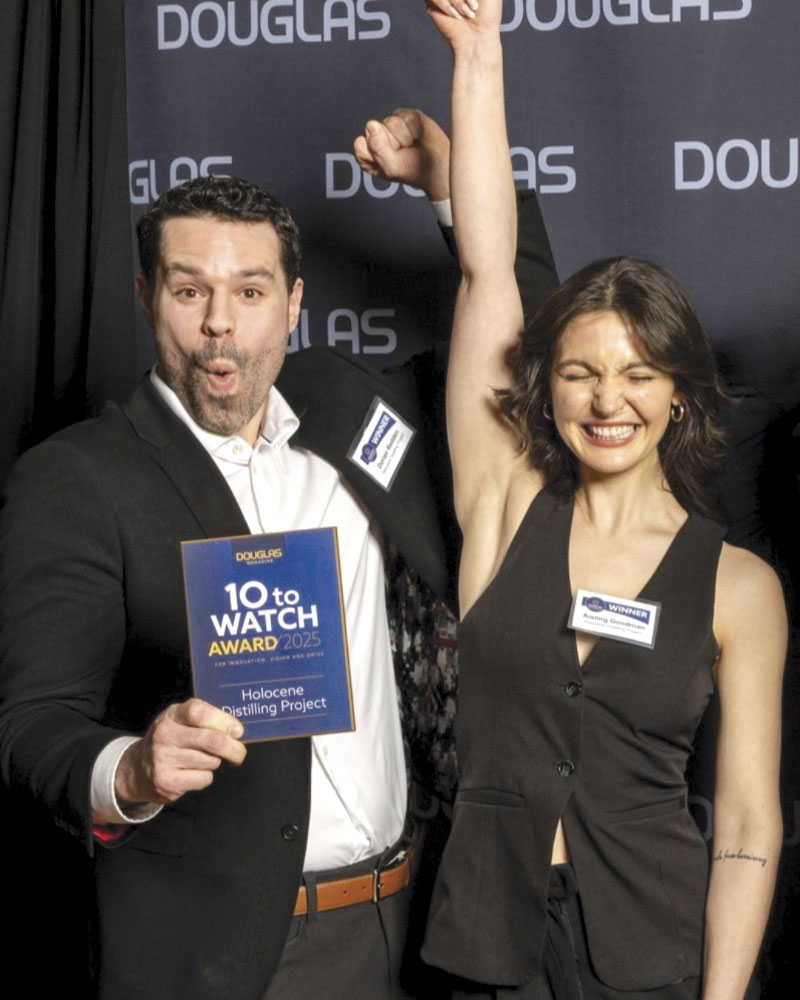
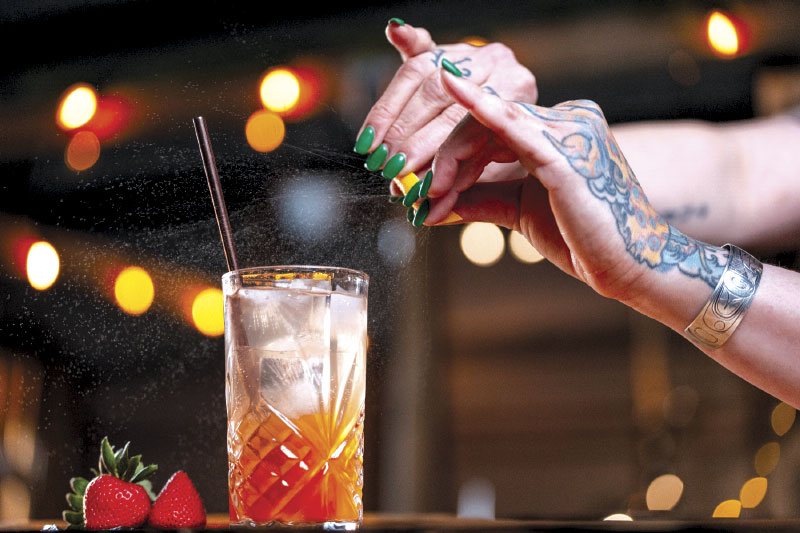
The distillery uses electric stills with direct element heating, featuring a closed-loop cooling system that is regulated geothermally. They also use the heat coming off the stills to heat the water for the building. For their stills, one is 1,000 litres, and they also have two smaller, 200-litre stills. Everything else in the distillery, the design and layout, was thanks to Redden.
“Last month we sold out of all of our product … like 100 per cent, not a single bottle left on the shelf. We don’t want that to happen again, so we are looking to upgrade our equipment to bigger tanks to keep up with production,” said Redden.
Currently, Holocene Distilling Project has a lineup of vodka, gin and liqueurs. They have also created a ready-to-mix cocktail and a brandy in the past. The ready-to-mix is a limited release that comes out around Christmas time. The brandy is part of their Lost and Found lineup, which is unique in that they take alcohol from other producers that might not have worked out for them. Instead of the materials going to waste, Holocene uses them to make a base. “They’re limited, experimental and fun products with a neat concept,” Redden said. They also use recycled ingredients in their liqueurs, all part of their focus on becoming carbon neutral by 2030.
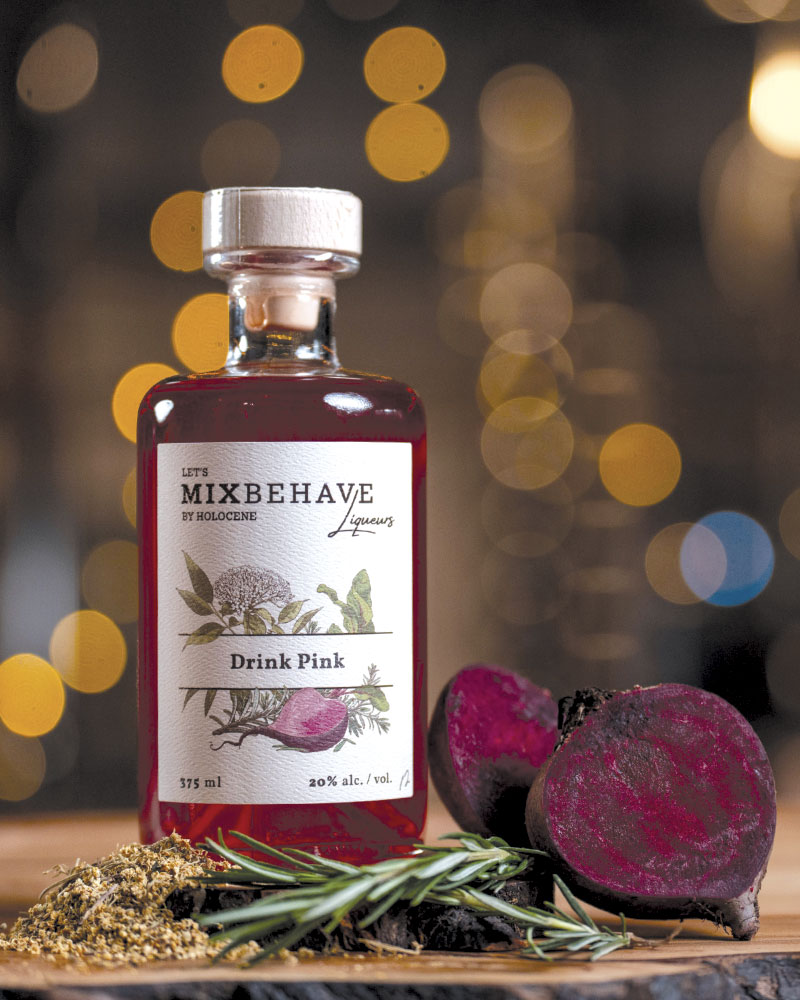
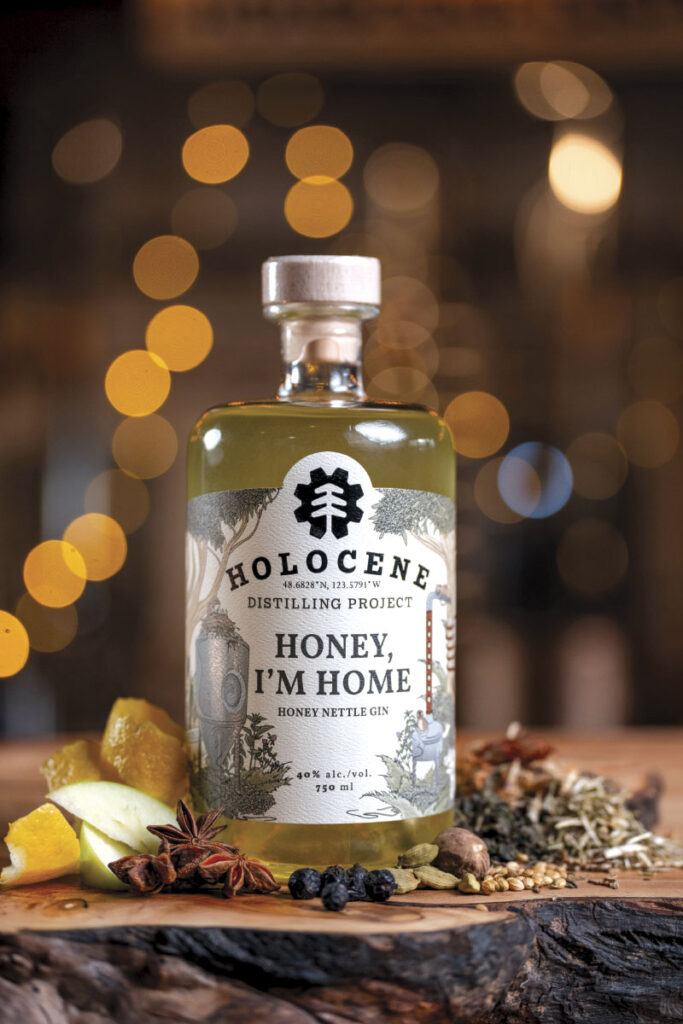
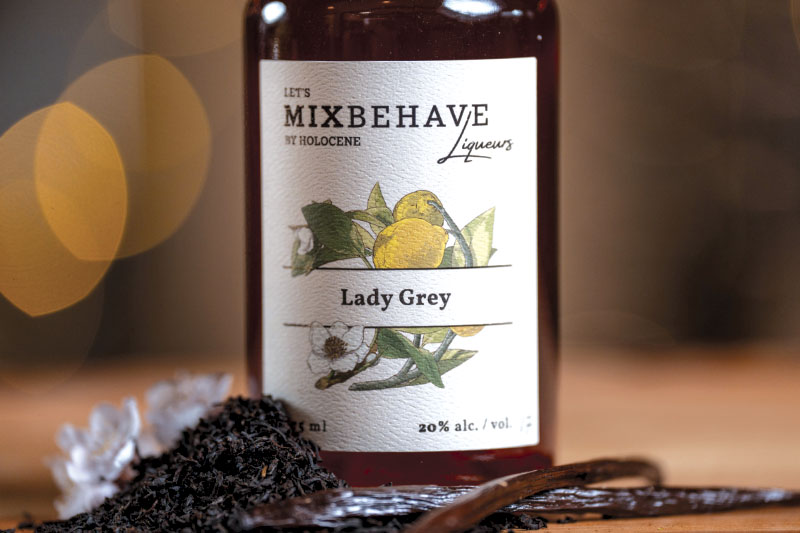
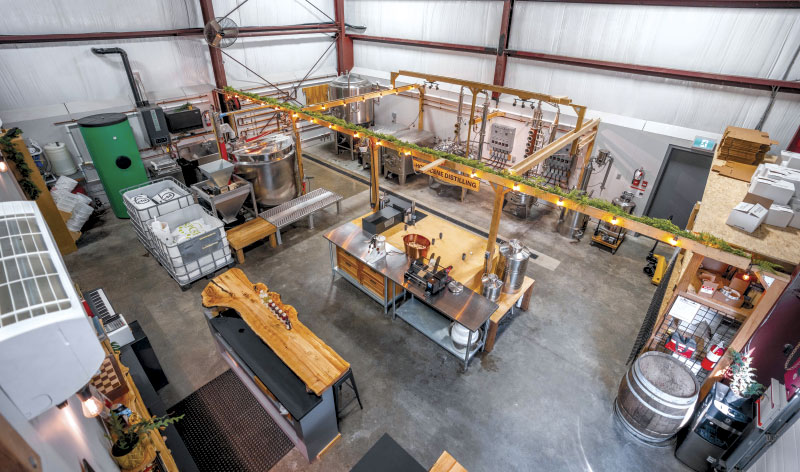
Currently, their alcohol is all distilled from a wheat base. “We go from raw wheat to a bottle of vodka in 10 to 12 days. Our gin and liqueurs are both another week on top of that,” said Redden.
Having received substantial awards, including silver for Best of the North West in the liqueur category from Sip Magazine for their Creme Violette, a Best in Class in the Flavoured Gin category from the Canadian Artisan Spirit Competition (CASC) for their Honey I’m Home Honey Nettle Gin, a Favourite at the British Columbia Gin Festival for the Creme Viollette, and two additional gold medals and one bronze medal from CASC for their liqueurs, Holocene may be small, but they are producing high-quality products that people and critics alike are noticing.
“We’ve also won some business awards. Douglas Magazine in Victoria placed us in the Top 10 Businesses to Watch in Victoria in 2025. That was really fun,” said Redden. Additionally, they have won a Black Tie Award for Environmental Excellence from the Cowichan Valley Business Awards and, in 2024, CASC awarded them the Community Engagement Award.
What’s next for the Holocene team? Besides staying laser-focused on their net-zero carbon neutral goal by 2030 and expanding their production, they are also working on coming out with another mainstay gin and a limited release liqueur for a specific exclusive liquor store.

